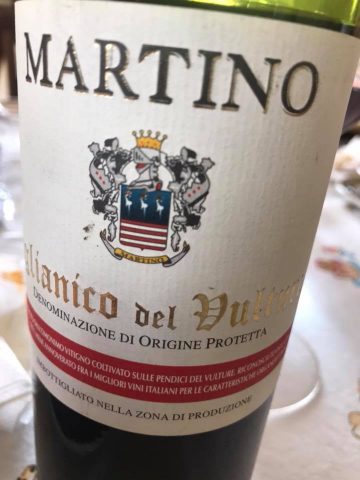Objective opinions

Every value judgement, even if based on agreed-to parameters, cannot escape the fact that it was expressed by a subject who has personal knowledge, aptitude and technical competence.
As some of you know, for a few years my life centered around philosophy. I took a degree in it exactly 40 years ago and I still remember a thing t two. I say this to qualify myself and to try and explain my bewilderment when I hear certain statements, perhaps said with the best intentions, which do not hold up from either a logical or philosophic standpoint.
One of the most common of these in our world of wine is that a wine evaluation must be “objective”. Now, I don’t know if that term is supposed to mean “impartial”, not conditioned by elements that are not exactly appropriate, very personal, like a certain fondness for a producer or, much worse, motivated by some unmentionable interest of an economic nature or an uncritical expression of personal taste that is not based on in-depth analysis. If, on the other hand, as I have had occasion to read, “objectivity” is supposed to mean something that cannot be questioned, which comes from a subject who passes judgement and we all should feel obligated to accept this because it is, in this case, “objective”, then I have to mark my distance.
Every value exists because there is an evaluating factor, my philosophy mentor Guido Calogero used to say. Every value judgement, even if based on established parameters, cannot escape the fact of being expressed by a person, who has knowledge, aptitude and an ability for sensorial analysis that are personal and different from any other subject. In other words, we do not all have the same nose and palate. One can limit subjectivity by agreeing to parameters and sensorial analysis guidelines to establish what elements wines have in common. But already when evaluating adherence to a concept of territoriality and typicity, very evident aspects of a personal nature emerge.
Analyzing whether a hint of volatile acidity or Brett represents a defect or not, or whether those tannins in that Barolo or Aglianico del Vulture are acceptable for that wine or vintage, or whether the acidity is low or excessive, are elements that each one tends to consider in a personal way, whether they realize it or not. And this even among experts, even on tasting panels where everyone tries to be on the same page. Then again, everyone has found themselves being evaluated in a different way by teachers, more or less strict, even on the same subject. And in that case the evaluation was of people, not wine, which is something more complex.
Even the synthesis of an organoleptic analysis, thus qualitative and esthetic, into a number value or grade, thus quantitative, raises no few problems. This is usually done for practical purposes, as in school, but whether it is reliable is a debate that has been going on for centuries, and numbers and math do not determine objectivity.
And so, with the exception of elements of common sense and intellectual honesty, which have to do with professional ethics, the morality of the person making an evaluation, as well as their technical skill, I would, personally, avoid using the term “objective” in the literal sense, which in the end is its most authentic meaning. When evaluating a wine, it is sufficient to state the purpose for making the evaluation and to be intellectually honest, taking into consideration that one is dealing with the work of others. Many winemakers seek to do the best they can and deserve to be considered with attention and respect and not as an object for target practice more or less sadistically justified by a misguided concept of “objectivity”.

 Italiano
Italiano








